AIOT 2020: The 1st IEEE International Workshop on Advanced IoT Computing
Call for Papers
Goal of the workshop:
The goal of this workshop is to share and discuss the most advanced researches and development studies in the area of “IoT Computing” among researchers, engineers and practitioners from academia and industry, focusing on new technical proposals and practical experiences with widely sharing the research issues that we must solve in this research domain. The workshop will provide an excellent opportunity to address the research issues and solutions in sufficient depth and breadth, and is intended to share knowledge and exchange ideas and/or actual field experiences, thereby promoting new studies and research topics in this area.
Workshop theme:
IoT has entered a new age. Not only collecting data from sensors, but also processing the collected data in a variety of contexts on sustainable IoT systems are getting more and more important these days. Sometimes, the data contains privacy or confidential information, which cannot be exported to Cloud, or sometimes it is better to process the data at the edge devices because of temporal network failure, or to improve service latency or traffic amount.
Scope of the workshop:
IoT has entered a new age. Not only collecting data from sensors, but also processing the collected data in a variety of contexts on sustainable IoT systems are getting more and more important these days. Sometimes, sensor data or system management data contain privacy or confidential information, which cannot be exported to Cloud. In some cases, it is also better to process the data locally because of temporal network failure, or to improve service latency or traffic amount. This workshop will talk about the solutions of these issues encountered in real IoT deployments.
The workshop topics include, but are not limited to:
IoT Edge Computing
- Platform architecture and implementation
- Application case studies and practices (e.g. Intelligent transport systems)
- Machine learning (e.g., Federated learning)
- Distributed processing
- Computer vision for sensing
- Performance, scalability, and robustness
- Beyond 5G
IoT Sustainability and Security
- Malware intrusion detection
- Incident response system
- Network measurement
- Vulnerability management
- Large-scale deployment and test
- Privacy management and anonymization
Likely participants: IoT data engineers and IoT system security researchers are called to participate and exchange ideas and techniques.
Workshop Chairs
Hideya Ochiai, The University of Tokyo, Japan
Email: ochiai@elab.ic.i.u-tokyo.ac.jp
Susumu Takeuchi, NTT, Japan
Email: susumu.takeuchi.sp@hco.ntt.co.jp
Program Committee
Chandreyee Chowdhury (Jadavpur University, Kolkata, India)
Chian C. Ho (National Yunlin University of Science & Technology, Taiwan)
Kazuyuki Shudo (Tokyo Institute of Technology, Japan)
Masayuki Hirafuji (The University of Tokyo, Japan)
Matsuura Satoshi (Tokyo Institute of Technology, Japan)
Michiharu Takemoto (NTT, Japan)
Mie Mie Su Thwin (University of Computer Studies Yangon, Myanmar)
Ryohei Banno (Tokyo Institute of Technology, Japan)
Sarbani Roy (Jadavpur University, Kolkata, India)
Tomoki Yoshihisa (Osaka University, Japan)
Xun Shao (Kitami Institute of Technology, Japan)
Yuuichi Teranishi (NICT / Osaka University, Japan)
